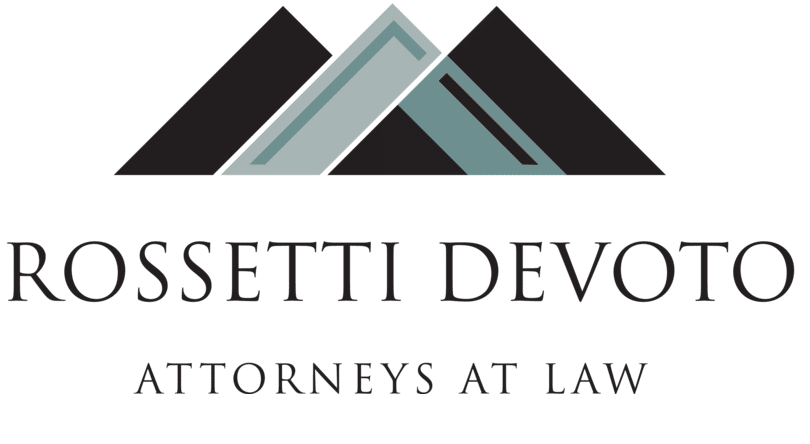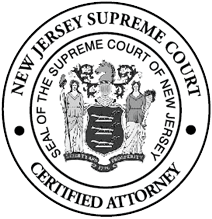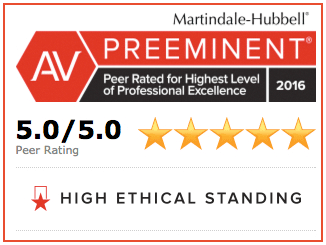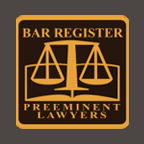The Daubert Analysis
Learn more about the Daubert analysis from this paper written by Andrew J. Rossetti.
THE DAUBERT ANALYSIS
Andrew J. Rossetti, Esquire
12/15/99
I. THE FEDERAL STANDARD OF ADMISSIBILITY
A) FRE 702. TESTIMONY BY EXPERTS.
If scientific, technical, or other specialized knowledge will assist the trier of fact to understand the evidence or to determine a fact in issue, a witness qualified as an expert by knowledge, skill, experience, training, or education, may testify thereto in the form of an opinion or otherwise.
“The sole justification and purpose of expert testimony is to assist the trier of fact to find a solid path through an unfamiliar and esoteric field.” Thompson v. Merrill Dow Pharmaceutical, 229 N.J.Super. 230 (App. Div. 1988). The average juror is relatively helpless in dealing with a subject that is not a matter of common knowledge. See State v. Kelly, 97 N.J. 178, 209 (1984). In addition, the Court simply requires an expert to possess “the minimal technical training and knowledge essential to the expression of a meaningful and reliable opinion.” Hake v. Manchester Tp., 98 N.J. 302, 843 (1985).
“Rule 702 requires that expert opinion testimony be rendered by a qualified expert, based upon reliable data and methodology.” Rutigliano, 929 F.Supp. 779 (D.N.J. 1996). “The testimony must [also] be relevant to the case at hand.” Id. In fact, rule 702 established these three requirements; often known as qualification, reliability, and fit. See Id.
i. Qualification.
In fact, the qualifications required of Rule 702 have a liberal interpretation. See In re Paoli R.R. Yard P.C.B. Litigation v. Southeastern, 35 F.3d 717, 741 (3rd Cir. 1994). “[T]he threshold for finding a proposed expert witness qualified is admittedly low.” Diaz v. Johnson Matthey, Inc., 893 F.Supp. 358, 373 (D.N.J. 1995). A wide range of knowledge, skills, and training qualify an expert as such. See In re Paoli, 35 F.3d at 741. Moreover, “[i]t is an abuse of discretion to exclude testimony simply because that trial court does not deem the proposed expert to be the best qualified or because the proposed expert does not have the specialization that the court considers most appropriate.” Kannankeril v. Terminix Intern., Inc., 128 F.3d 802, 809 (3rd Cir. 1997).
So, the person who is ‘best’ qualified is “a matter of weight upon which reasonable jurors may disagree.” Holbrook v. Lykes Bros. S.S. Co., Inc., 80 F.3d 777, 782 (3rd Cir. 1996). Therefore, “[i]f the expert meets liberal minimum qualifications, then the level of the expert’s expertise goes to credibility and weight, not admissibility.” Id.
ii. Reliability of Daubert Analysis.
Also, rule 702 assigns the trial judge with the task of ensuring that an expert’s testimony rests on a reliable foundation. See Daubert, 509 U.S. at 579. “The inquiry into reliability requires a court to examine whether an expert has ‘good grounds’ for his or her opinions.” Diaz 893 F.Supp. at 373 (quoting Daubert 509 U.S. 579, 580, 113 S.Ct. 2786, 125 L.Ed.2d 469 (1993)). Moreover, the Supreme Court in Kumho Tire Co., Ltd. v. Carmichael, 119 S.Ct. 1167, 143 L.Ed.2d 238 (1999), stated that the list of several factors initially introduced in Daubert may be considered when determining whether the testimony of other experts, who are not scientists, is reliable. See Id. These factors include:
(1) whether a “theory or technique. . . can be (and has been) tested”
(2) then, whether it “has been subjected to peer review and publication”
(3) or, whether, in respect to a particular technique, there is a high “known or potential rate of error” and whether there are “standards controlling the technique’s operation”
(4) whether the theory or technique enjoys “general acceptance” within a “relevant scientific community.”
Kumho and Daubert Analysis
Kumho, 119 S.Ct. at 1175 (quoting Daubert, 509 U.S. at 593-595). In fact, the preceding list of factors “was meant to be helpful, not definitive.” Kumho, 119 S.Ct. at 1175. Daubert makes clear that the factors it mentions do not constitute a “definitive checklist or list.” Daubert at 593. Id. at 1175.
In fact, the Kumho Court pointed out that there are many different kinds of experts, and there are many different kinds of expertise. See Id. at 1175. However, in some cases, relevant reliability concerns center upon personal knowledge or experience. Nonetheless, whether the expert bases his or her testimony upon professional studies or personal experience, in the courtroom, he must utilize “the same level of intellectual rigor that characterizes the practice of an expert in the relevant field.” Id. at 1176. Moreover, the Supreme Court concluded that the “trial judge must have considerable leeway in deciding in a particular case how to go about determining whether particular expert testimony is reliable.” Id. So, the unique facts and circumstances of the particular case should resolve reliability. See Id. at 1179.
Kumho, therefore, extended Daubert to all areas of expert testimony including engineering, handwriting, economic and analysis, psychological evidence and all other areas of technical expertise.
iii. Fitness to testify.
“The final requirement of Rule 702 is that the expert witness must be able to assist the trier of fact to reach accurate results.” Diaz, 893 F.Supp. at 377 (quoting Paoli, 35 F.3d at 743). The proffered expert testimony must be “sufficiently tied to the facts of the case that is will aid the jury in resolving a factual dispute.” Daubert, 509 U.S. at 591. This has been described as “fit.” See Id. In addition, an expert’s conclusions must be supported by good grounds in each step of the analysis. See Rutigliano, 929 F.Supp. at 784. “The Federal Rules of Evidence embody a ‘strong and undeniable preference for admitting any evidence having some potential for assisting the trier of fact.'” Lanni v. State of New Jersey, 177 F.R.D. 295, 300 (D.N.J. 1998) (quoting Holbrook, 80 F.3d at 780).
“Because the Rule permits the admission of expert testimony whenever it will assist the factfinder, any information beyond common experience may be an appropriate subject for expert testimony. . .” Daniel J. Capra, The Daubert Puzzle, 32 Ga. L. Rev. 699, 738 (1998).
B. The judge decides whether the experts are reliable; the jury decides whether the experts are correct.
To summarize, “[t]he inquiry [envisioned by Rule 702] is a flexible one, and its focus must be solely on the principles and methodology, not on the conclusions that they generate.” Daubert, 509 U.S. at 580. “[The] judge decides whether the experts are reliable; the jury decides whether the experts are correct.” Diaz, 893 F.Supp. at 373 (quoting Paoli, 35 F.3d at 744). Thus, the trial judge must be cautious not to confuse credibility questions for admissibility questions. See Kannankeril, 128 F.3d at 809. So, in short, the judge is in charge of the Daubert analysis and examination.
II. THE NEW JERSEY STANDARD AND DAUBERT ANALYSIS
A) New Jersey Rule of Evidence 702:
Rule 702. Testimony by Experts
If scientific, technical or other specialized knowledge will assist the trier of fact to understand the evidence or to determine a fact in issue, a witness qualified as an expert by knowledge, skill, experience, training, or education may testify thereto in the form of an opinion or otherwise.
In fact, the wording of New Jersey Rule 702 of Evidence is identical to Federal Rule 702.
B) New Jersey has not wholly adopted the Daubert/Kumho analysis.
In fact, the Supreme Court’s comment to Rule 702 illustrates the New Jersey court’s intent to be independent of federal analysis.
Moreover, the comment reads:
This rule intends to incorporate New Jersey case law establishing the general criteria for admissibility of expert testimony articulated by State v. Kelly, 97 N.J. 178, 208 (1984). As restated by Landrigan v. The Celotex Corporation, 127 N.J. 404, 413 (1992), these criteria include the requirements that “(1) the intended testimony must concern a subject matter that is beyond the ken of the average juror; (2) the field testified to must be at a state of the art such that an expert’s testimony could be sufficiently reliable; and (3) the witness must have sufficient expertise to offer the intended testimony.”
Frye Standard
Prior to Rubanick v. Witco Chemical Corp., 125 N.J. 421 (1991), New Jersey followed the General Acceptance/Frye standard.
There are three ways a proponent can prove reliability under Frye within the professional community:
1. The testimony of knowledgeable experts.
2. Authoritative scientific literature.
3. Persuasive judicial decisions which acknowledge such general acceptance of expert testimony.
See Thompson v. Merrell Dow Pharmacy.
But, Rubanick changed the emphasis from General acceptance to sound methodology. This permitted expert testimony in areas that were not yet generally accepted in the scientific community. The Rubanick court held:
Accordingly, we hold that in toxic-tort litigation, a scientific theory of causation that has not yet reached general acceptance may be found to be sufficiently reliable if it is based on a sound, adequately-founded scientific methodology involving data and information of the type reasonably relied on by experts in the scientific field. Moreover, the evidence of such scientific knowledge must be proffered by an expert who is sufficiently qualified by education, knowledge, training and experience in the specific field of science. The expert must possess a demonstrated professional capability to assess the scientific significance of the underlying data and information, to apply the scientific methodology, and to explain the bases for the opinion reached.
Be aware that Rubanick applied specifically to toxic tort cases and may in the future be extended to other cases where there is scientific validation.
So, similar to the “Gatekeeping” function addressed in Daubert/Kumho, the New Jersey Supreme Court in Landrigan v. Celotex Corp., 127 N.J. 404 (1992), held that the trial court must distinguish “scientifically sound reasoning from that of the self-validating expert who uses scientific terminology to present unsubstantiated personal beliefs.”
NJ v. Federal Approaches
In fact, the Appellate Division reiterated the importance of sound methodology in Bahrle v. Exxon Corp., 279 N.J. Super. (App. Div. 1995). The Bahrle court also drew a slight distinction between New Jersey and federal approaches to Rule 702:
Evidence Rule 56(2)(N.J.R.E. 702 to 703), permits consideration by an expert witness of data and information “if of a type reasonably relied upon by experts in the particular field in forming opinions or inferences upon the subject.” See also Rubanick v. Witco Chem. Corp., 125 N.J. 421, 447, 593 A.2d 733 (1991). In toxic-tort litigation a scientific theory of causation that has not reached general acceptance may be sufficiently reliable if “based on a sound, adequately-founded scientific methodology involving data and information of a type reasonably relied on by experts in the scientific field.” Id. at 449, 593 A.2d 733.
The expert must identify the factual bases for his or her conclusions, explain methodology and demonstrate that both the factual bases and the methodology are reliable. Landrigan, 127 N.J. at 417, 605 A.2d 1079. See also Daubert v. Merrell Dow Pharmaceuticals, Inc., 509 U.S. ___, ____, 113 S.Ct. 2786, 2796-97, 125 L.Ed.2d 469, 482-83 (1993)(federal judges must examine whether the scientific knowledge can be and has been tested, whether it has been submitted to peer review and publication, the error rate of the measuring technique and the level of acceptance in the relevant scientific community.)
Daubert has also been cited with apparent approval in Ripa Owens-Corning Fiberglass, 282 N.J. Super. 373 (App. Div. 1995).
III. HOW TO AVOID BEING “BLOWN OUT” WHEN IT COMES TO DAUBERT ANALYSIS
Case preparation has become even more critical in the wake of Daubert analysis. In fact, attorneys must appreciate the heightened scrutiny that their experts will be put through from the very first contact with the expert. Additionally, one must pay as much attention to an expert’s methodology as his/her conclusion. At the same time, the attorney must be sure that the facts support the expert’s conclusion.
No longer will an expert be able to proclaim conclusions that are only supported by his/her weighty curriculum vitae or his/her pronouncement that “based on his/her 40 years experience this is so.” Instead, he/she and the attorney must produce literature, data, governmental reports, forensic testing, industry testing, etc… that support his/her methodology. Moreover, the attorney should always be looking for validation of his/her expert’s methodology through the opposing expert’s deposition.
In conclusion, this short paper will hopefully help you in understanding the Daubert Analysis.









